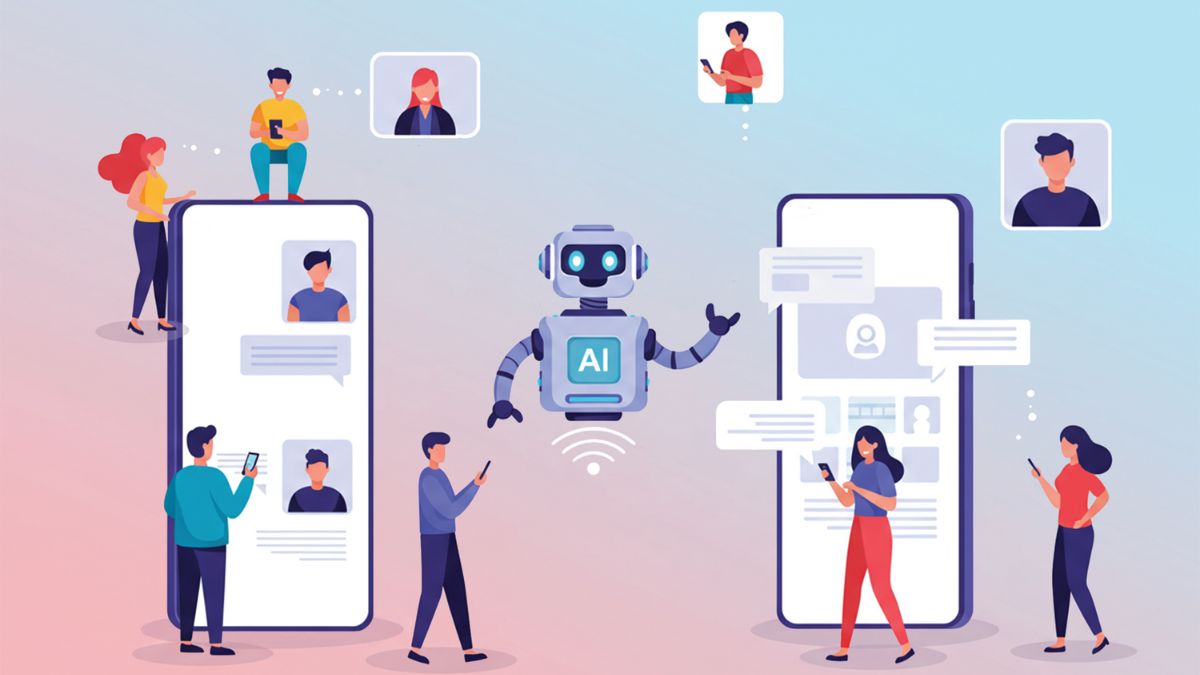
The digital transformation accelerated by artificial intelligence (AI) has forced a reformulation of strategies and marketing team structures. One of the most notable changes is the evolution of traditional roles such as the community manager, who today must adapt to a new era marked by automation, real-time personalization, and content generation with generative models.
According to the report Artificial Intelligence (AI) Job Market, produced by Statista, this evolution entails the emergence of new profiles such as the AI marketing manager, the prompt strategist, the creative data engineer, and the specialist in algorithmic ethics applied to branding.
ALSO READ. CFO vs. CMO: The disagreement that can kill your marketing budget
Artificial Intelligence already dominates key marketing functions
In 2024, marketing was the business function that used generative artificial intelligence the most: 27% of companies reported using AI to create strategies, generate content, and design personalized creativity.
Other functions using AI — such as sales, product design, and service operations — did not exceed 20%. This positions marketing not only as a pioneer in AI adoption but also as the area that has most quickly begun to reconfigure its internal roles.
ALSO READ. Top 10 Marketing Skills for 2025 (According to Global CMOs)
What is changing inside marketing teams with AI?
The automation of operational tasks — such as scheduling posts, responding to common messages, or audience segmentation — is already a reality. But the deeper change is the repositioning of marketing professionals towards functions that require:
- Ability to work with real-time data
- Understanding of recommendation algorithms
- Skill in training generative models and evaluating their output
- Mastery of prompt engineering and AI ethics applied to branding
This means that the old community manager profile — focused on managing social networks manually — is being replaced by new hybrid roles that combine creativity, data, and technology.
The most valued skills in this new context
Companies are already recruiting based on this new AI-driven marketing paradigm. The study shows that by 2025, employers will prioritize the following key skills for AI and marketing-related roles:
- Analytical thinking (69%)
- Technology literacy (51%)
- AI and big data as strategic skills (45%)
- Creative thinking (57%)
- Leadership and social influence (61%)
- Curiosity and continuous learning (50%)
The combination of technical and soft skills will be fundamental to leading AI-supported marketing initiatives, especially in contexts where user interaction is automated but the brand seeks to maintain authenticity and emotional connection.
What are companies looking for when hiring new talent?
To capitalize on the potential of artificial intelligence, companies are modifying their hiring strategies:
- 77% focus on internal reskilling and upskilling
- 69% plan to hire people with skills to design AI tools specific to their business
- 62% want talent that can quickly integrate into AI-assisted workflows
This represents a unique opportunity for marketing professionals who decide to train in AI and data science, or who already have experience with martech tools, predictive analytics, and content automation.
Where is this transition happening fastest?
The regions most advanced in AI-driven transformation, according to the study, are:
- North America (96%)
- Latin America and the Caribbean (93%)
- East Asia (92%)
In these markets, campaigns are no longer conceived without AI. Companies are investing in building digital infrastructure, including APIs, integrations with assistants, and CRM automation with generative AI.
How should marketing teams adapt?
To face this transformation, teams must:
- Redefine roles and functions: The job title matters less than the ability to integrate AI into creative and strategic workflows.
- Get trained in key tools: from ChatGPT and DALL-E to data analysis platforms like Azure Databricks and Google Gemini.
- Promote ethics and transparency: AI responsibility in marketing is not only technical but also reputational.
ALSO READ. Wednesday Season 2: How long will the second part episodes be?
👩💻 From community manager to AI manager: new key roles
1. AI Content Strategist
Responsible for generating and supervising content created by language models such as GPT, ensuring brand coherence, tone, and creative value.
2. Prompt Engineer for Marketing
Specialist in designing prompts that optimize the creative output of tools such as DALL·E, Midjourney, or ChatGPT Assistants API (the most mastered among AI engineers in 2024, with a score of 61.5).
3. Creative Data Analyst
Analyzes results of AI-powered campaigns to identify engagement patterns, algorithmic A/B testing, and optimization opportunities.
4. AI Marketing Manager
Coordinates the integration of AI technologies into omnichannel campaigns, evaluates tech providers, promotes ethical best practices, and leads organizational change.
👉 Follow us on Google News.










